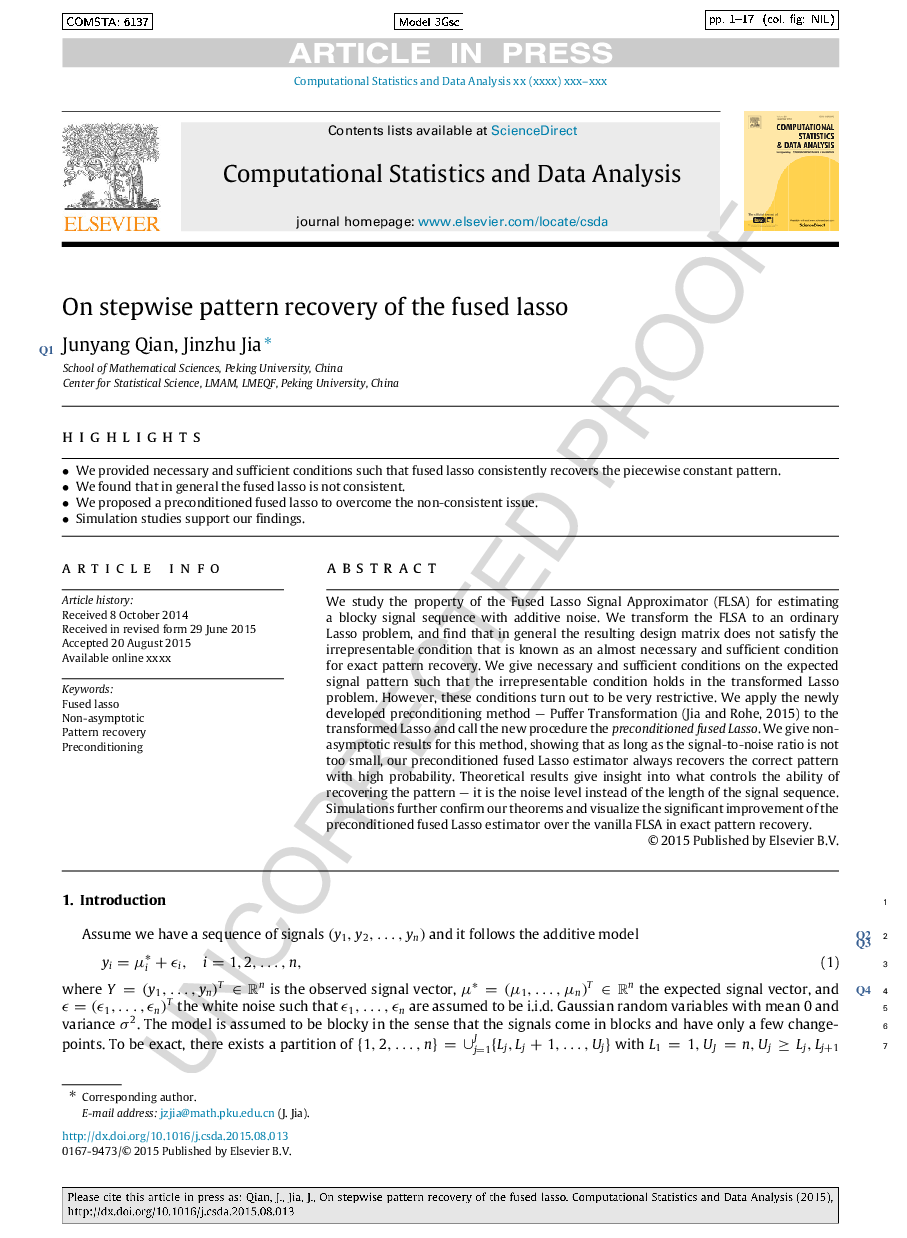| Article ID | Journal | Published Year | Pages | File Type |
|---|---|---|---|---|
| 6869391 | Computational Statistics & Data Analysis | 2016 | 17 Pages |
Abstract
We study the property of the Fused Lasso Signal Approximator (FLSA) for estimating a blocky signal sequence with additive noise. We transform the FLSA to an ordinary Lasso problem, and find that in general the resulting design matrix does not satisfy the irrepresentable condition that is known as an almost necessary and sufficient condition for exact pattern recovery. We give necessary and sufficient conditions on the expected signal pattern such that the irrepresentable condition holds in the transformed Lasso problem. However, these conditions turn out to be very restrictive. We apply the newly developed preconditioning method - Puffer Transformation (Jia and Rohe, 2015) to the transformed Lasso and call the new procedure the preconditioned fused Lasso. We give non-asymptotic results for this method, showing that as long as the signal-to-noise ratio is not too small, our preconditioned fused Lasso estimator always recovers the correct pattern with high probability. Theoretical results give insight into what controls the ability of recovering the pattern - it is the noise level instead of the length of the signal sequence. Simulations further confirm our theorems and visualize the significant improvement of the preconditioned fused Lasso estimator over the vanilla FLSA in exact pattern recovery.
Keywords
Related Topics
Physical Sciences and Engineering
Computer Science
Computational Theory and Mathematics
Authors
Junyang Qian, Jinzhu Jia,
